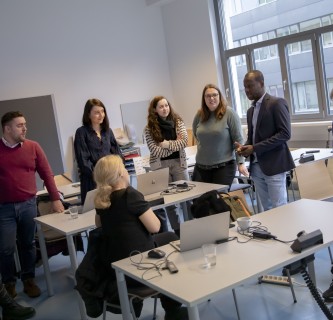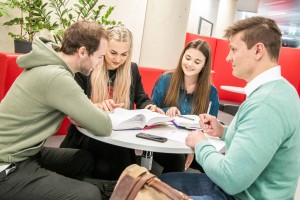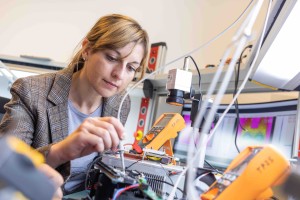FuturENG
Shaping the Engineers of Tomorrow

Targeting higher education students and educators in engineering, the FuturENG project aims to align education with industry trends, focusing on digital and green transitions.
Project description and methodology:
The "FuturENG" project, under the Erasmus+ program, aims to revolutionize engineering education in Europe. Its primary objective is to align higher education in engineering with the latest industry trends, focusing particularly on digital and green transitions. By integrating these contemporary themes into the curriculum, FuturENG seeks to ensure that future engineers are well-equipped with the skills and knowledge necessary to address the challenges of the modern world. One of the key strategies of FuturENG is the incorporation of challenge-based learning, a method that promotes hands-on, practical experiences alongside theoretical studies. This approach not only enhances learning outcomes but also ensures that students are ready to tackle real-world problems efficiently upon graduation. Additionally, the project emphasizes the development of digital competencies, recognizing the growing significance of technology in all fields of engineering. Furthermore, FuturENG is committed to fostering knowledge-triangle cooperation, which involves collaboration among educational institutions, research centers, and industry partners. This collaboration is essential for keeping the curriculum up-to-date with the latest industry developments and for providing students with valuable insights into current professional practices.
Objectives:
- Boosting Technical Knowledge: Develop a Tech Essentials MOOC (R1) to provide higher education engineering students with cross-disciplinary knowledge in Industry 4.0, sustainable digitalization, twin transition, and deep tech (SO1).
- Enhancing Skills through Challenge-Based Learning: Create a challenge-based learning Toolbox (R2) with webquests to boost students' transversal, digital, and green skills, fostering an interactive and experiential learning environment (SO2).
- Supporting Educators: Provide a Training Guide & Roadmap (R3) for higher education educators to effectively implement the FuturENG program, ensuring students' technical knowledge and skills development (SO3).
- Strengthening Knowledge-Triangle Cooperation: Introduce a knowledge-triangle cooperation methodology (R4) to foster collaboration between academia, research, and business, ensuring the development of up-to-date and relevant educational programs (SO4).
- Recognition of Achievements: Implement an Open Badges micro-credential system to recognize and validate student achievements in completing lessons and webquests, providing tangible proof of acquired skills (SO1 & SO2).
Project consortium:
The consortium partners in the FuturENG project encompass various prestigious European universities and institutions, ensuring a wide range of expertise and resources for the successful implementation of the project.
Kick-off meeting in at FH JOANNEUM Graz

Funded by the European Union. Views and opinions expressed are however those of the author(s) only and do not necessarily reflect those of the European Union or the European Education and Culture Executive Agency (EACEA). Neither the European Union nor EACEA can be held responsible for them.







